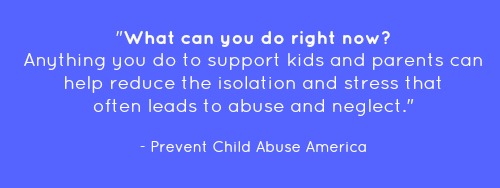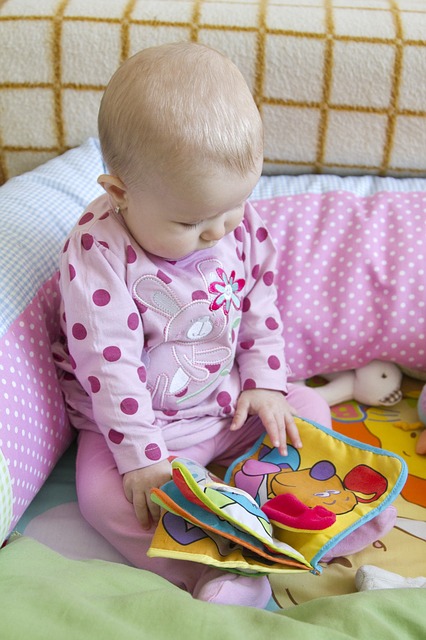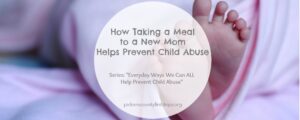Moms and Dads don’t begin their journeys as parents planning to abuse or neglect their children.
Any one of us may think we’re above taking out our stress on children until one day, we find ourselves strangled by external pressures and talking to our own children through clenched teeth and with a tone that’s harsher than we’d want anyone to hear.
Usually that’s where it ends but what about when it doesn’t? What about parents whose stress keeps unraveling until they strike out at their children in abusive ways?
Though we could take a close look at risk factors or study generational patterns, the mission of this series is to empower YOU — the everyday mom, dad, caregiver and community member — to step out in simple, doable, everyday ways toward child abuse prevention.
It can be as easy as paying attention in the grocery line and offering a weary mom a cold soda from the checkout cooler.
Or preparing a double batch of dinner so that you can take a meal to a new mom.
Every small kindness can make a difference.

For this post, let’s consider how financial burdens can trigger parents and caregivers to take their out stress on kids.
Parents both above and below the poverty line suffer from financial stress that piles on top of existing burdens, threatening the stability of their family and the stability of their emotional health. When that happens, the safety and security of children are also at risk.
When the bills are piling up and the baby is crying.
When the creditors won’t stop calling and the kids won’t stop fighting.
When the bank is threatening to foreclose and the toddler just threw all the shoes in the toilet.
There are so many families in need right around you. Don’t let their middle class-ness or social status fool you. Any family can be one job loss or one costly emergency away from dire financial straits and the stress that results.
In light of this, there are resources you may have that can ease someone’s burden and make a difference.
What you may deem disposable, another family may deem essential.

Who do you know that can use the clothes your child just grew out of? And if you don’t know of someone, ask your school, church, or after-school program.
What charity or family in need would appreciate the gently-used sofa you recently replaced?
How about the Spiderman bedding your child has outgrown or the non-perishables in your pantry?
These are simple, everyday ways to give what you have right now to change the course of someone’s day and lighten the load of a burdened parent.
And if you’re able to give in other ways, whether it’s a grocery store gift card or paying someone’s utility bill, do it.
Sometimes we hesitate to give because we don’t want to be insulting. But saying something like:
“I noticed your daughter is just a tad smaller than mine and I’d love to find a good home for these clothes she outgrew so quickly. Could you use them?”
If you’re giving something that’s monetary, consider giving anonymously if you’re worried about how it might be received.
Regardless of how you give, remember that your small kindness may go a long way in relieving the burden of an anxious parent and protecting the children in your community.
You’re not just giving something away. You’re providing relief. And when you provide relief to overwhelmed parents, you’re preventing child abuse.
Join us next week when we offer more ideas to inspire everyday actions we can all take toward child abuse prevention. By the end of this month, you’ll have a toolkit full of everyday ways you can make a difference. Right where you are.
“Everyday Ways You Can Help Prevent Child Abuse” Blog Series
What Can I Possibly Do to Prevent Child Abuse?
How Taking a Meal to New Mom Helps Prevent Child Abuse
Don’t miss a post! Subscribe to our blog where we regularly offer everyday ways to nurture the young children in our lives. If you’re reading from a computer, subscribe in the blue box in the right sidebar. If you’re on a mobile device, subscribe in the blue box at the bottom of this post.
Follow us:
To learn more about Child Abuse Prevention Month:
National Child Abuse Prevention Month
Children’s Trust of South Carolina



